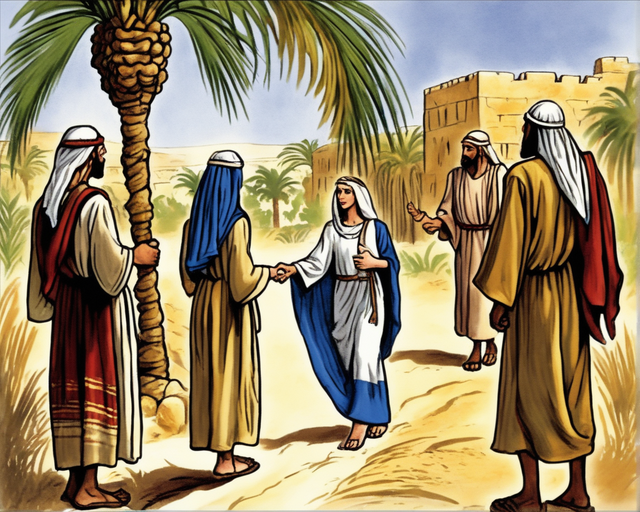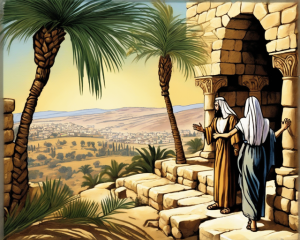The Lioness of Israel: Deborah’s Divine Triumph


In the heartland of Israel, beneath a palm’s welcoming shade, sat Deborah. Not just any woman, she was a beacon of hope, a prophetess, and a judge, guiding her people with wisdom and insight. (Judges 4:4-5)
Yet, shadows loomed over the land. The Canaanite king, Jabin, and his formidable general, Sisera, with a fleet of 900 iron chariots, had tightened their grip on Israel for 20 harrowing years. The people’s pleas for salvation echoed in the heavens. (Judges 4:2-3)
In this hour of darkness, a divine message was entrusted to Deborah. She was to summon Barak, a warrior, and command him to rally an army against Sisera. Victory, she promised, was assured by the heavens. (Judges 4:6-7)
However, Barak hesitated, stating he’d march to war only if Deborah stood by his side. She agreed but foretold a twist of fate: the honor of defeating Sisera would be bestowed upon a woman. (Judges 4:8-9)
On the day of reckoning, as the two armies clashed, divine intervention took shape. Torrential rains transformed the battlefield into a quagmire, trapping Sisera’s formidable chariots. The Israelites, against all odds, tasted victory. (Judges 4:13-16)
But the tale took another turn. Fleeing the battlefield, Sisera found what he thought was sanctuary in Jael’s tent. As he lay resting, Jael, with unyielding courage, ended his tyranny with a swift blow of a tent peg. Deborah’s prophecy had manifested. (Judges 4:17-22)
In celebration of this divine triumph, Deborah and Barak’s voices soared in a song of gratitude, honoring the Almighty and the valiant Jael. Their melody became an enduring anthem of faith and bravery for generations to come. (Judges 5)

